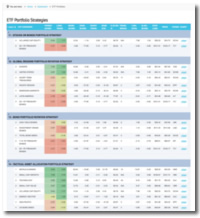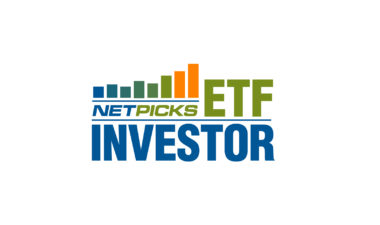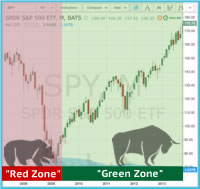
The benefits of self directed ETF investing can help you fulfill your goal of achieving financial independence sufficient for the lifestyle you desire.
Thank you for reading this post, don't forget to subscribe!You want to be able to provide for yourself and your loved ones without working and that involves setting aside money on a regular basis and building up a retirement fund.
A common approach is to identify a manager or broker, send a lump sum, or set up a regular payment and then forget about it. You’ll receive a statement once a year, you’ll look at it, maybe. And then its back to work.
At some stage down the road you will retire and after trusting your money to the “professionals”, there may or may not be enough money to fund the lifestyle you have dreamed about after your working days are over.
Now is the time to take a hands on approach to make sure you are doing everything possible to maximize the returns in your retirement portfolio. if you really want to achieve financial independence, you need to put some work into understanding and making decisions on the investment of your own money.
Self directing your retirement fund has many advantages and there are many ways to do it.

Minimize Professional Fees To Boost Returns
In a managed investment you will typically pay annual fees to a broker and a fund manager and while these fees vary in cost, they are a drain on your returns.
Self Directing your ETF account for your retirement keeps those fees in your account increasing the ability to compound your gains.
Fund management charges are contentious. It is reasonable to expect the manager of your money to charge for the work they do, and when markets are rising strongly the fees are easily overlooked.
When that manager under performs they still get the fee and in the end, you have paid out these fees to have the “privilege” of a money manager make you zero increase in your retirement account.
Compounding the effects of high management fees, the longer you have your money invested the greater the chunk of money you will be paying out to the managers.
The Securities and Exchange Commission (SEC) crunched the numbers on this and found that when investing $100,000 over a 20 year period, a 1% annual fee would knock an extra $30,000 off your portfolio value, as opposed to a 0.25% fee.

Due to the powerful effect of compound interest, even the smallest of difference in fees will add up to a meaningful amount and make a very big difference over the years.
Chop Your Fees, Increase Returns
There are many ways to self direct your investments and two fees to target.
- There is the portfolio management fee. If you manage your portfolio yourself then you won’t have to pay this.
- If you invest in a fund you will pay a fund management fee. This is more difficult to avoid but there are ways to reduce it. Buying stocks and bonds direct for example, constructing a portfolio of futures and options or using an Exchange Traded Fund (ETF) which typically have very low fees.
How Can You Start Investing?
Buying and holding high quality stocks and bonds has been proven over the long term to work. You pay custody and administration fees, which are very low, but no management fees.
The difficulty is picking which stocks and bonds to buy and the risk involved in not spreading your assets and therefore your risk correctly.
Futures and Options are an extremely complex area of investment and often involve leveraging. If you are not expert it is also a possible to lose more money than you have.
You can get involved with Futures and Options trading if you are able to find a trading strategy you are comfortable with and has proven itself over time.
Exchange Traded Funds originated in the U.S. in 1989 but didn’t really gain popularity for a variety of legal reasons until Barclays Global Investors made a big push for the market in the mid to late 1990’s.
Since then, their popularity has grown and the range of funds available has exploded. An ETF is a fund designed to simply track an index.
You can track the S&P500 with an ETF, follow a specific sector such as Retailers, or invest in Gold through an ETF. All are very versatile and low cost in comparison to managed funds.
Where To Put Your Investment Dollars
This is the million dollar questionand one that cannot be answered here without a crystal ball. Self directing your retirement fund allows you considerable scope and flexibility however.
Sign up for some newsletters, look for an ETF advisory website, and with some research, a few ideas and with a focus on risk management, you could build a diverse portfolio investing almost anywhere you see an opportunity.
You Are Missing Out If Not Self Directing
There are two key benefits to managing your own retirement fund.
- Reducing costs and therefore potentially boosting returns.
- Ease the psychological pressure. You are seeking financial independence and so taking a hands on approach may very well help you along the way.
Self directing your own investments is not for everybody. You may be too busy to get involved with managing your own money and some of you like the piece of mind that handing over control gives us. It allows us to get on with our lives without the worry.
But that may not be the best way to maximize your returns and the SEC report has made that very clear.
Regularly reviewing and making decisions on your investments focuses the mind, can make you more productive in other areas of life, and keener to invest more, safe in the knowledge you are not simply paying fees to lose your money.
Whether you are 20 years or 2 years away from retirement, it is never too late to take an active role in the future you will have long after you stop clocking in at your job.

